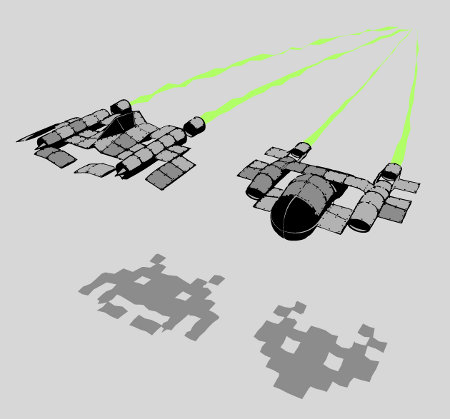
There seems to be a lot of debate going on about the role and value of planning and strategy within agencies.
Planners and strategists sometimes like to ask why and reframe questions multiple times, but if we’re to avoid risking the old recursive logic loop/analysis paralysis/navel-gaving problem, I think in this case it may be good to question what we’re really debating?
I don’t think it is just the role of planning.
From the Redscout and PSFK content stream to comment pieces like this, these debates actually seem to me to point to being about more than planning.
I think they’re about the role of agencies in a digital world, a world where one day there won’t be “digital” agencies or departments, just agencies that produce great ideas with a digital DNA.
It is in this context that I’ve been exploring the idea that agencies need to help brands to function as both enabler (of services, content, utility, entertainment) and filter (of noise, relevance, need) for people in order to have a role beyond passive loyalty. Brands not only need a position within a market/category but must also have a clear point of view their role in the world and as a contributer to the culture of their purchasers. This way agencies can evolve to help our clients to solve business problems in a culturally and practically positive way.

Strategy and Planning is in the ideal position to lead this process.
Planning and strategy needs to be more about doing. It needs to be involved in collaborative agile scrums with creatives or technologists to help shape the structure and effectiveness of a response, not just had over a brief.
Insight generation seems to be built all too frequently around the barriers to communication but it could be more about potential benefits, understanding, utility and cultural opportunities if strategic planning were to spread upstream in the process and even get involved in client NPD.
But spreading influence up and downstream should not mean diluting deeper analysis and thought to become a Jack of all trades.
It is vital that the deep dive, research methodology of good strategic planning and insight generation is maintained.
We can do this by exploring the culture and narrative around the challenge we are exploring and building a robust understanding of people in terms of their actions (What they do), the social context (Who they do the action with) and motivation (What they think or feel).
By definition insight occurs when people recognise relationships or make associations between objects and actions that can help them solve new problems. Insight generation is about recognising relationships that are already there or that can be created when two disparate facts/conditions come together. It is similar to the way the famous Telegraph cartoonist Matt described his art as, “putting two unconnected news stories together” to come up with something entertaining that makes you think about both the stories in new ways.
In this context strategy and planning is a creative act.
So instead of working alone, perhaps planners could adopt the partnership or team structure used in creative departments to combine different skillsets or areas of expertise (data/financial modeling paired with behavioural & technology insight)?
Admittedly some of this may sound like the protestations of a reformed sinner – having returned* to strategy/planning about a year and a half ago after 9 years as a hybrid creative and digital strategist I still have my little creative strops – but I think it is the external perspective on what planners do that is important.
We need to be the most effective people in the room, not the most intelligent.
So why is there a picture of Space Invaders at the top of this post? Because it is a great image (from a T-Shirt on Threadless, go and beg them to reprint more!) and because I think it is a great metaphor for planning and strategy – creating unexpected value by looking at the world from a deeper and different angle.
—————
* Thanks to Trevor Wright the Planning Director at IMC who took me on many moons ago as a fresh faced, mop-topped grad, and gave me a position as a “Strategic Planner and New Media Manager” (big title with a small but gratefully accepted paycheck) before kicking me off to the creative/tech department after a couple of years when he realised that the agency “could plan anything but it wouldn’t matter if you can’t deliver it”. You can find him at Westminster Business School these days and I definitely recommend it.
Tags: brand planning, digital strategy, Feature, Planning, Strategy







